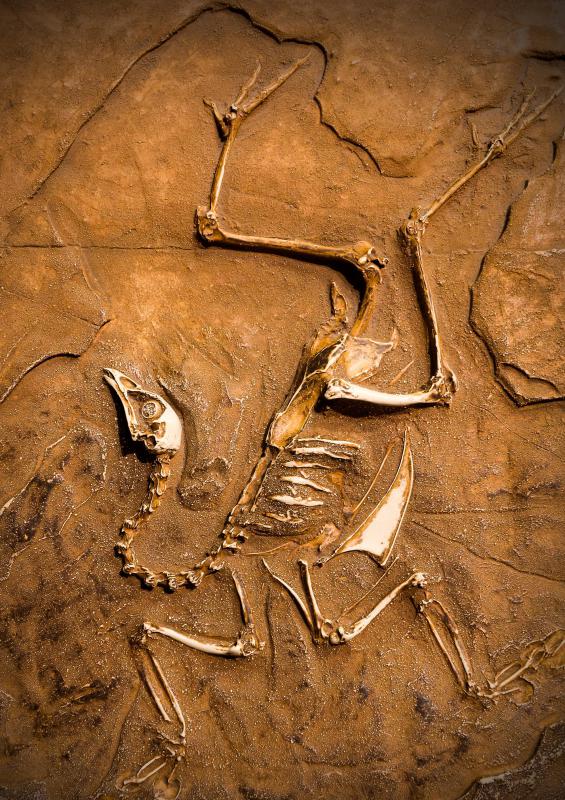At WiseGEEK, we're committed to delivering accurate, trustworthy information. Our expert-authored content is rigorously fact-checked and sourced from credible authorities. Discover how we uphold the highest standards in providing you with reliable knowledge.
What is Old Earth Creationism?
Old Earth Creationism (OEC) refers to several types of creationist belief with the common thread that they all agree with science about the age of the planet (4.6 billion years rather than 8,000-12,000) but believe that God initially created the universe. Old Earth Creationism is an umbrella term for several different types of creationism, including Gap creationism, Progressive creationism, Day-Age creationism, and theistic evolution. The rising popularity of Old Earth Creationism and the corresponding decline of Young Earth Creationism over the last few centuries can be attributed to scientific knowledge, including the discovery of fossils, radiocarbon dating, ice cores, geological evidence of Ice Ages, measurement of the speed of light, and many others. Today, many Christians and Jews believe in Old Earth Creationism.
For thousands of years after the writing of the Bible, most Christians, Jews, and Muslims believed in Young Earth Creationism, that the Earth was created approximately 8,000 years ago. This was measured by using the genealogies and ages chronicled in the Bible and estimating the duration of time between Adam and more contemporary figures whose birth and death dates are known. Young Earth Creationists believe that the world was created by God in six literal 24-hour days, during which the Earth and everything on it, including the ancestors of all currently-living plants and animals, were created out of nothing.

However, Young Earth Creationism suffered as contradicting scientific knowledge was progressively uncovered, much of which suggested that the Earth was billions of years old rather than about 8,000. This resulted in changes in the popular interpretation of the Christian creation myth as presented in the book of Genesis. One of the first variants to emerge was Gap creationism, which argues that there was a large gap between Genesis 1:1, the "first creation" ("In the beginning God created the heaven and the earth"), and Genesis 1:2-31 ("And God said, "Let there be light"; and there was light," etc.) This theory was popularized by Thomas Chalmers, an early 19th century divinity professor at the University of Edinburg and founder of the Free Church of Scotland.

Another popular form of Old Earth Creationism is Day-Age Creationism, which argues that the "days" in the Biblical creation story are metaphorical, and that these days may have actually lasted millions or billions of years. This reconciles Genesis with science somewhat. Another variant is Progressive creationism, which states that God created the Earth and life progressively, over the course of billions of years, and that when a new species emerges, it is due to direct intervention by God. Progressive creationists dismiss the notion of macroevolution or a universal common ancestor.

Another subvariety of Old Earth Creationism is theistic evolution. Theistic evolution is the most "modernist" variety of creationism, which essentially asserts that God created the world billions of years ago, and uses Darwinian evolution and natural selection as the mechanism whereby new species are created.
AS FEATURED ON:
AS FEATURED ON:














Discussion Comments
@clintflint - Well, it does make a huge difference to education, because a lot of modern science hangs on the fact that the Earth is older than 6000 years. And if you truly believe that the Earth was created that long ago then you also believe that your children are being taught a lot of rubbish over the course of their government-mandated curriculum.
@Mor - I've never been able to understand why it mattered so much to religious people to establish that scientists are wrong. The creationism museum, for example, just seems like it's going a little bit too far in attempting to discredit science and Old Earth Creationism, but I can't see why they bother.
Does it really matter what other people believe even if you believe something different? Maybe if it was something that would actually affect modern life, like conflicting beliefs about the death penalty, I could see why they would spend so much on trying to convince people either way. But whether the Earth is 6000 years old or several billion doesn't actually make any difference to anything practical.
I've always found it mildly insulting that young-Earth creationists seem to want to chalk up fossils and other evidence of an ancient Earth as tricks that God uses to test us. I just don't think God would be that petty.
It always seemed to me that the idea that God's creation was billions of years old (or older, if you look at the whole universe rather than just the age of the Earth) and able to function completely independent of interference was far more impressive than the idea of a glorified terrarium that was only a few thousand years old and constantly interfered with when things aren't going to plan.
Post your comments